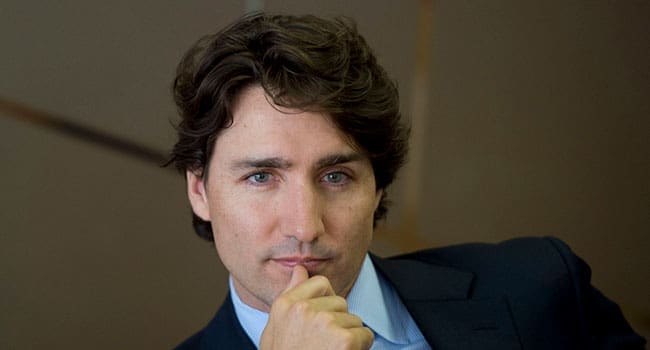 Prime Minister Justin Trudeau will soon visit Canada’s ethics commissioner for the third time in five years.
Prime Minister Justin Trudeau will soon visit Canada’s ethics commissioner for the third time in five years.
His ethical standards and lack of a moral code have been in question as the result of two previous controversies – visiting the Aga Khan’s private island and the SNC-Lavalin boondoggle. This new political controversy could be the straw that breaks the political camel’s back.
Trudeau’s decision to award WE Charity a $19.5-million contract to administer the $912-million Canada Student Service Grant program has come under major scrutiny.
He claimed WE Charity was “the best and only organization able to deliver on the scale,” which seemed rather dubious. He was criticized for not properly disclosing his family’s long-standing ties with this charitable organization, including large speaking fees. He didn’t recuse himself from the cabinet’s decision-making process for this contract in spite of these obvious conflicts of interest.
The muddied political waters weren’t aided when Trudeau and his chief of staff, Katie Telford, appeared before the House of Commons finance committee. Their appearances resulted in few answers and led to far more questions.
What’s the solution?
Two pollsters believe the best course of action could be hiring someone internally to oversee ethical procedures.
“It’s really critical that they up their game on the aggressive vetting, potential conflicts, both in (Finance Minister Bill) Morneau’s office and Trudeau’s office and probably more generally ministers’ offices,” Innovative Research Group president Greg Lyle told The Hill Times’ Abbas Rana on Aug. 3. “If they don’t do that, then these things are going to keep coming back.”
Lyle also said “the PMO should bring on a senior top official who could vet all government initiatives before they are rolled out,” Rana reported, and this person would “speak truth to power” and prevent further questions about conflicts of interest.
Frank Graves of Ekos Research suggested something similar.
All the goodwill Trudeau has received during the COVID-19 pandemic has “just been kind of squandered on the altar of another controversy or ethics scandal, and it’s sloppy, it’s bad judgment, and it’s a serial pattern,” Graves told Rana in a separate interview. “This is not the first time … this is the third time. So they have to have a hard, long look at their office, you know, and say, ‘What are the gaps here?’… Maybe they need a director of ethics and oversight in their own office.”
With all due respect, these are preposterous suggestions.
The Office of the Conflict of Interest and Ethics Commissioner has existed since 2007. This entity was created to be the main – and final – authority on ethics violations that occur in Canadian politics.
Any political party that felt even slightly compelled to set up a sub-authority on ethics issues would prove it shouldn’t be anywhere near the levers of government.
Hiring a political partisan to do this task within the cabinet or caucus would be pointless. They might have the party’s best interests at heart, but their foresight couldn’t be as effective as someone on the outside with no political ties. There needs to be distance between a director or senior government official who is examining ethics issues and the party, and that’s impossible to achieve in this scenario.
Assuming the Trudeau Liberals would hire someone who wasn’t a political partisan would be laughable. How could this person be properly vetted in a room full of partisan loyalists? How could caucus members trust someone who wasn’t one of them? How could you prevent heated arguments over what is or isn’t an ethical violation? How could you ensure this position didn’t quickly evolve into a rotating door that potential applicants would likely avoid?
Hiring a director of ethics wouldn’t make Trudeau’s embattled leadership more ethical. It would create new layers and challenges that could make this situation even worse.
What can Trudeau do to prevent further ethics violations?
The PM and his senior advisers must start examining each case on an individual basis, and fully understand every pitfall and complication that could occur.
The government’s assumptions of what is or isn’t a potential ethics violation has been highly suspect for five years. The proof is in the ethical pudding, after all.
Michael Taube, a Troy Media syndicated columnist and Washington Times contributor, was a speechwriter for former prime minister Stephen Harper. He holds a master’s degree in comparative politics from the London School of Economics.
The views, opinions and positions expressed by columnists and contributors are the author’s alone. They do not inherently or expressly reflect the views, opinions and/or positions of our publication.

